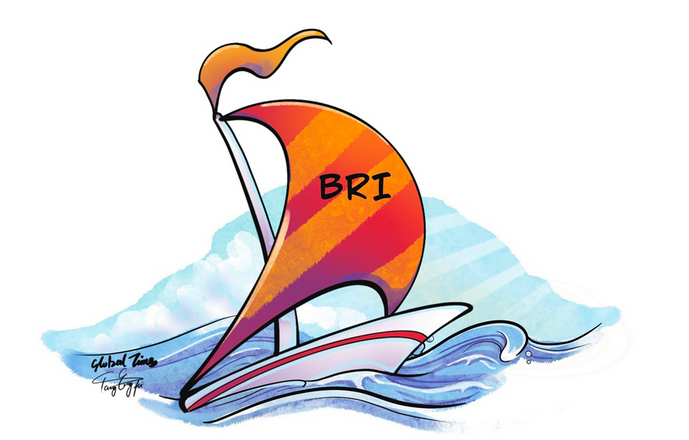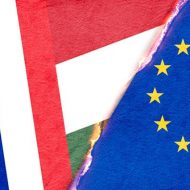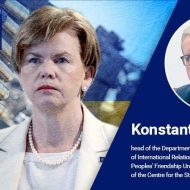The institutions that constitute the backbone of the current, West-led international system are waning in power as multipolarity takes hold in the world. An up-to-date picture of this situation was given by the agenda of and discussions at the 78th session of the United Nations General Assembly last month that incidentally was attended by the leaders of any of the five Security Council members except the United States.
“Rebuilding trust and revitalizing global solidarity: accelerating action towards the 2030 Sustainable Development Goals to ensure peace, prosperity, progress, and sustainability for all” was the overarching theme of the 78th UN General Assembly.
Announced in September 2015, the United Nations 2030 Agenda for Sustainable Development comprises 17 goals and a 15-year road map to, among others, end poverty, eradicate inequality and injustice, and mitigate climate change by 2030.
Unfortunately, with just six years to the 2030 deadline, there has been no significant progress on the road map. In fact, it was clear from the outset that the 17 goals might remain on paper, because the UN alone cannot eradicate inequality and injustice and realize the aspirations of humanity.
Also, many member states today see the UN as a “dysfunctional organization” . Rebuilding the UN according to its founding charter and ending imperialism are tasks that humankind cannot postpone.
The G20 Summit, incidentally, was held just before the UN General Assembly session. The theme of the summit, held in New Delhi on Sept 9-10, was similar to that of the UN General Assembly. Under the theme, “One World, One Family, One Future”, the G20 Summit’s agenda included the Russia-Ukraine conflict, “strong and sustainable growth, sustainable development goals, climate and environment, digital transition and gender equality”.
The G20 members are Argentina, Australia, Brazil, Canada, China, France, Germany, India, Indonesia, Italy, Japan, the Republic of Korea, Mexico, Russia, Saudi Arabia, South Africa, Türkiye, the United Kingdom, the United States and the European Union.
According to data from the Organization for Economic Co-operation and Development, the G20 member states together account for about 85 percent of global GDP, 75 percent of world trade, and two-thirds of the world’s population.
The G20 claims to “bring advanced and emerging economies around the same table”, and “its core agenda is to achieve strong, sustainable and balanced global growth and create quality jobs”. But, in reality, the G7 countries, which account for 30 percent of global GDP, use the G20 platform to keep the middle-sized states of the Global South in check.
No wonder just like its high-sounding theme, the G20 Summit exposed the widening division between the Global South and the Global North, giving rise to the question: Has G20 outlived its usefulness? After all, neither Chinese President Xi Jinping nor Russian President Vladimir Putin attended the G20 Summit. And the G7 countries’ demand for a condemnation of Russia in the final declaration was rejected. According to an Indian official, more than 200 hours of negotiations, 300 bilateral meetings, and 15 revisions of the draft were made in order to reach a consensus on the summit’s final declaration.
At UN meetings, speeches are made about “eradicating hunger and poverty, sustainable development”. At the G20 meetings, similar announcements are made amid the crocodile tears of the G7 countries, the source of all the problems.
Amid all this, a completely different platform for international cooperation, which has proven its mettle in just 10 years, is holding the Third Belt and Road Forum for International Cooperation in Beijing on Tuesday and Wednesday. According to the Chinese Foreign Ministry, more than 110 countries have confirmed their participation in the forum, which, after the opening ceremony, will hold three high-level meetings on “connectivity, green development, and digital economy”.
The Belt and Road Initiative has mobilized about $1 trillion worth of investment, and launched more than 3,000 cooperation projects over the past decade. And by the end of June, China had signed more than 200 Belt and Road cooperation documents with 152 countries and 32 international organizations.
According to the World Bank, if all the Belt and Road transportation infrastructure projects are built and become operational by 2030, global real income could increase between 0.7 percent and 2.9 percent, lifting 7.6 million people out of extreme poverty and 32 million out of moderate poverty (World Bank, The Belt and Road Economy: Opportunities and Risks in Transport Corridors Report, June 18, 2019).
At a time when developing countries, struggling against the destructive effects of the neoliberal globalization system, are demanding the establishment of a more just international order, the Belt and Road Initiative, accordingly, has been promoting peace, cooperation, and common development despite the imperialist policies that aggravate conflicts between countries and provoke wars.
The initiative’s principle of “sharing” is new to bilateral and multilateral partnerships. The initiative promotes cooperation on the basis of equality, mutual benefit and shared development, making mutual use of the strengths of nation states. The Belt and Road Initiative, led by developing countries, is paving the way for a new global society based on sharing, solidarity, and harmony between human and nature.
While Vladimir Putin may attend the Third Belt and Road Forum for International Cooperation, according to media reports, many leaders of the Global South, including the presidents of Serbia and Argentina, are attending the forum. Given the opportunities and possibilities it offers, the Belt and Road Initiative can help Türkiye to revive its slowing economy, and provide it with a unique cooperation platform to realize its interests in the international arena.
This article was first published on China Daily here.
Cover graphic by BRI Forum.









Leave a Reply